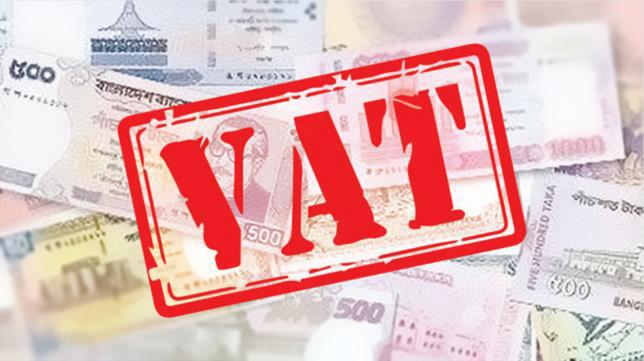One single VAT registration for taxpayer is way forward

I extend my sincerest thanks to the National Board of Revenue (NBR) for amending several provisions of the Finance Bill 2019 and a few statutory regulatory orders (SROs) with regard to the VAT and Supplementary Duty Act, 2012 and Rules, 2016. I believe that there is still room for improvement and hence would like to draw attention of the policy department of the NBR on the issue of registration.
As per law, if an entity carries on economic activities of identical or similar goods or services or both from two or more places, it may apply to obtain central registration provided the books and accounts are maintained centrally. Let us take an example of a company, which has three factories, four warehouses, one central depot, and seven divisional depots and more than hundred retail stores around the country. If this company is not entitled to central registration, it may opt to apply for unit registration, which means it will be required to obtain more than 115 registrations and there are other consequences. Now the question arises whether it will be entitled to this central registration or not? The company carries on economic activities of identical or similar goods. The definition of identical or similar goods has neither been found in the VAT and Supplementary Act, 2012 nor in the Rules, 2016. However, a definition has been given in the VAT and SD (Fair Market Value) Rules, 2019 through SRO no- 180-Law/2019/37- Mushak on June 13, 2019. In fact, this definition has been taken from the Customs Valuation (Determination of Value for Imported Goods) Rules, 2000.
In summary, identical goods refer to goods which are the same in all respects, including physical characteristics, quality and reputation. Minor differences in appearance would not preclude goods otherwise conforming to the definition from being regarded as identical. On the other hand, similar goods refer to goods which, although not alike in all respects, have like characteristics and like component materials which enable them to perform the same functions and to be commercially interchangeable. The quality of the goods, their reputation and the existence of a trademark are among the factors to be considered in determining whether goods are similar.
The company produces items under three broad categories: electronic items, furniture and household goods and consumer goods. The three factories are located in three different divisions of Bangladesh. Electronic items include television, air conditioner, refrigerator, microwave oven, sandwich maker, and blender. Furniture and household goods include bed, sofa, and chest of drawers. Consumer goods include cold drinks, drinking water and other related items. One factory dedicatedly manufactures electronic items and the remaining two manufacture both household and consumer goods.
Are they producing identical or similar goods from these three places of business? Same model television or air conditioner may be considered as identical and different models may be considered as similar goods. When a television is compared with air conditioner, it can neither be called identical nor similar. Hence based on my understanding as per law, the company cannot opt for central registration.
Consequences:
Higher compliance Cost: The company will have to maintain books and records in each location. It will need to appoint many people or consultant to file the VAT returns. As such, the cost will go up.
Higher product cost: The cost of the product may go up. For example, cold drinks attract SD and the price to depot is Tk 20 per unit. So, SD will be levied while transferring the goods from a factory to a depot. With the same example, the declared price from depot was Tk 30 per unit. If they maintain unit registration, the depot will be considered as a separate business identification number-holder. So, the authorities may raise demand for SD on such a supply from depot which will increase the cost of the product.
Unable to claim input tax credit: One unit will physically transfer the good to another unit. Such a transfer does not mean a transfer of money since a depot of a company does not pay the factory. As such the depot will not be entitled to claim the input tax credit since the law specifically mentions the requirement of using banking channel for a transaction over Tk 100,000.
Compliance issue: As per the Companies Act, 1994, a limited company needs to get the financial statements audited by a chartered accountant on a yearly basis. But, as per the VAT guideline, every unit must submit separate audited financial statements. So for 115 units, the company needs to prepare separate accounts and get them audited which is not possible as per the Companies Act, 1994.
The NBR is contemplating to issue a guideline for central registration. Hence, I would like to put forward a suggestion:
Status quo: We can maintain the provision of the VAT Act, 1991 with regard to central registration. This has been in practice for many years and as such this will facilitate the implementation of the Act easily and quickly. Amendments need to be brought for the payment through banking channel and audited financial statements.
Original provision of the VAT Act, 2012: One single VAT registration for a taxpayer is the way forward. However, unit registration may also be kept as an option if the taxpayer feels it comfortable.
The NBR also needs to evaluate three points while issuing the guidelines for central registration: (1) What happens when the same company manufactures as well as imports finished goods? (2) What happens when a trader imports as well purchases locally for onward sales to customers? (3) What happens when the same company sells both goods and services?
I do hope the above changes will facilitate the businesses to implement the VAT and SD Act, 2012 successfully, which will augment the revenue collection by the NBR.
